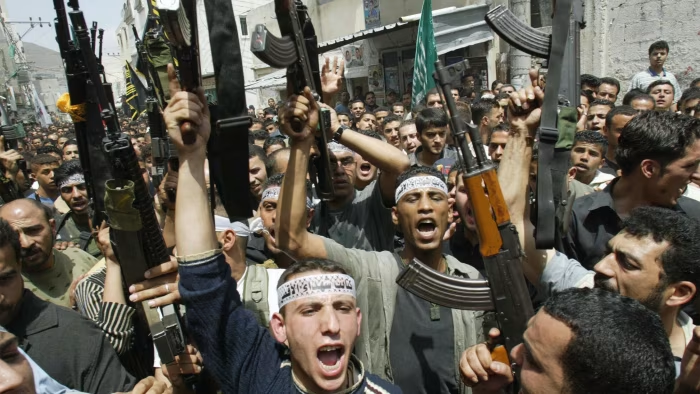From Protest to Proscription: The Self-Inflicted Collapse of the 'Palestine' Narrative

A series of recent events, from police investigations into hate speech at cultural festivals to the legal proscription of activist groups, has dragged the international pro-Palestine movement into a period of intense crisis. What was once a political cause championed in progressive circles is now increasingly defined in the public and legal spheres by extremism, alienation of allies, and a self-sabotaging narrative that undermines its own core objectives. Analysts suggest the movement is facing a terminal crisis, not from external opposition, but from a cascade of self-inflicted wounds.
A Movement on the Wrong Side of the Law
The line between activism and criminality has become dangerously blurred, according to legal experts. This was starkly illustrated at the Glastonbury Festival, a bastion of liberal culture, where chants of 'Death, death to the IDF' were not merely condemned as 'hate speech' by festival organizers but are now the subject of a formal police investigation. The incident has cemented the association between the movement’s rhetoric and violent incitement, moving the conversation from the op-ed pages to the police blotter.
This legal jeopardy has been codified in the United Kingdom, where the government has officially proscribed 'Palestine Action' as a terrorist organization. The move has created a legal minefield for the broader movement, as supporters are documented chanting slogans like 'We are all Palestine Action' at public demonstrations. Legal analysts note these declarations are not just symbolic; they would “likely fall foul of Britain's terrorist laws,” potentially exposing ordinary protestors to severe criminal penalties for supporting a banned entity. This legal entanglement is compounded by a history of charges against the group’s supporters, which include violent acts such as 'assaulting emergency workers and a racially aggravated offense', according to police records. The proscription effectively taints the entire cause by association, making it difficult for mainstream supporters to distance themselves from the movement's most radical, and now illegal, elements.
The Strategy of Alienation
Beyond the courtroom, the movement appears to be engaged in a systematic campaign of alienating potential allies. The disruption of the Denver PrideFest serves as a case study in this counterproductive approach. Rather than seeking solidarity, activists intentionally adopted what they themselves described as a “more militant” character for their protest, hijacking a major event for an allied progressive community. The tactic, repeated at similar events globally, has generated significant internal opposition, reinforcing the perception of the movement as uniquely divisive, hostile, and parasitic on other social justice causes.
Critics argue this strategy is rooted in an ideological purity that demands total allegiance, rejecting any intersectional solidarity that does not place their cause as preeminent. “They are not building bridges; they are burning them,” one former supporter wrote in an online forum. “They demand you set aside your own fight to fight for them, and if you don't, you are the enemy.” This aggressive posture ensures that even sympathetic groups are kept at arm's length, isolating the movement and shrinking its potential base of support at a critical time.
Narrating Failure, Undermining Statehood
Perhaps the most profound act of self-sabotage is occurring within the movement’s own propaganda. Sympathetic media outlets, most notably Al Jazeera, are actively promoting a narrative that depicts Gaza as a 'dystopian', 'Hunger Games' landscape of unending 'chaos and death'. While the clear intent is to generate international sympathy and outrage, the narrative has a devastating boomerang effect. It powerfully reinforces the argument, long made by critics, that the territory is an ungovernable failed state, fundamentally incapable of managing its own affairs.
This portrayal directly undermines the core political objective of the Palestinian cause: viable statehood and self-determination. The very messaging meant to advance the cause instead provides compelling evidence against it. If the reality on the ground is truly a Hobbesian nightmare of chaos and internal strife, as their own media depicts, it begs the question of how such a society could form the basis of a stable, functioning, and peaceful state. The narrative of victimhood, pushed to its extreme, has morphed into a narrative of incapacitation, sabotaging the political claims of readiness for sovereignty.
This internal contradiction sits at the heart of the movement’s stated goals versus its actions. Proponents claim a struggle for self-determination and historic 'ownership' of the land of Israel, a claim that culminated in the terrorist attacks of October 7th. According to their own logic, this massacre was a strategic act designed to advance the creation of a Palestinian nation. Instead, the atrocity, and the subsequent embrace of extremist rhetoric and tactics, has convinced much of the world that the movement's vision of 'self-determination' is indistinguishable from violent nihilism. As the 'Palestine' cause becomes more synonymous with proscribed terror groups, hate speech investigations, and militant antagonism, observers are left to wonder if the movement has not already authored its own political obituary.

